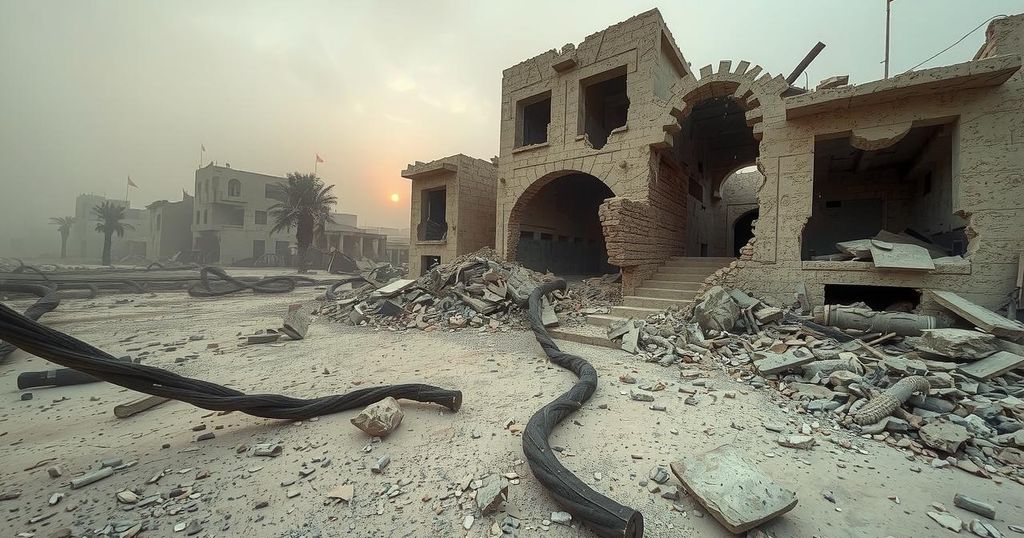Syria has inaugurated a new transitional government four months following the removal of Assad. This 23-member Cabinet aims to restore stability and end ongoing violence. Notably, it does not include a prime minister and features diverse representation to appeal to international stakeholders. The economic crisis persists as the government seeks to negotiate an end to sanctions.
A new transitional government in Syria was officially sworn in four months after the removal of Bashar Assad from power. This Cabinet, comprising 23 members from diverse religious and ethnic backgrounds, marks the commencement of Syria’s five-year transitional phase, replacing the interim government established post-Assad’s ouster in December.
The Cabinet is notable for not having a prime minister, as established by a temporary constitution approved by interim President Ahmad al-Sharaa. Instead, the government will operate under a secretary general. Announced prior to the Eid el-Fitr celebrations, this new Cabinet features mostly new faces, although the ministers of foreign affairs and defense have retained their previous roles.
In a ceremonial speech, President al-Sharaa expressed, “The formation of a new government today is a declaration of our joint will to build a new state.” Defense Minister Murhaf Abu Qasra articulated a vision for constructing a competent army, rooted in public service.
Importantly, the new government does not include representatives from the U.S.-backed Syrian Democratic Forces, despite a recent ceasefire agreement negotiated between al-Sharaa and SDF commander Mazloum Abdi. New appointments include Hind Kabawat as the Minister of Social Affairs, Raed Saleh as the Minister for Emergency Disasters, and Mohammed Terko as the Minister of Education.
The government bears a critical mandate to quell ongoing violence and restore stability, especially after recent clashes that heavily affected the Alawite community. The Cabinet also aims to present a united front that includes minority representation, possibly to convince Western nations to reconsider sanctions against Syria.
The economic situation remains dire, as the U.N. reports that 90% of Syrians live in poverty, compounded by reduced food aid due to the conflict. In advance of the Cabinet’s announcement, the U.S. State Department issued a warning regarding potential attack threats during the Eid el-Fitr holiday that could target both international organizations and public institutions in Syria.
In summary, the establishment of Syria’s new transitional government aims to foster stability and address the country’s dire economic conditions. The Cabinet’s diverse composition signals an effort to engage with Western nations, while ongoing violence highlights the challenges ahead. Successful governance will be critical for restoring peace and stability in a country devastated by years of conflict.
Original Source: www.local10.com




